Endocrinology and Hormones
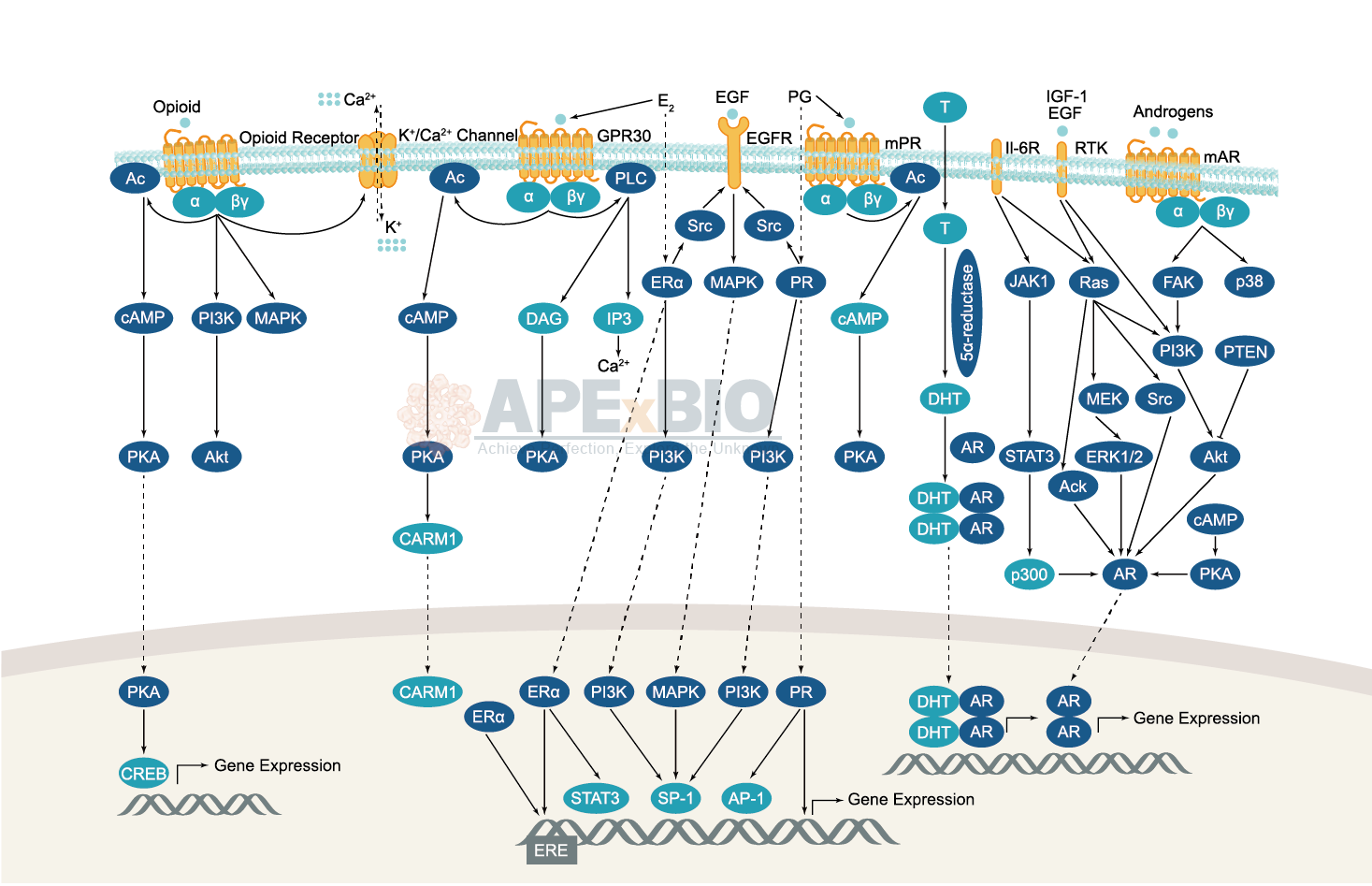
There are three types of hormones based on their chemical composition: Amines (e.g. dopamine, adrenalin and noradrenalin); Steroids (e.g. estrogen, testosterone and glucocorticoids); Peptides (e.g. the peptide hormones insulin, ghrelin and vasopressin). Peptide hormones produced by secretory nervous tissue are known as neuropeptides. For example, thyroid hormone plays important parts in development, homeostasis and metabolism, while cortisol is essential for growth, nutrient supply and immune function. Moreover, the regulation of blood glucose involves several pancreatic peptide insulin and its counter regulatory hormone, glucagon, as well as cortisol, growth hormone and epinephrine.
Dysregulations in endocrine system are implicated in diseases such as Acromegaly, Cushing Syndrome, Diabetes, Dwarfism, Graves Disease, Hermaphroditism, Delayed and Precocious Puberty and Thyroid Diseases.
-
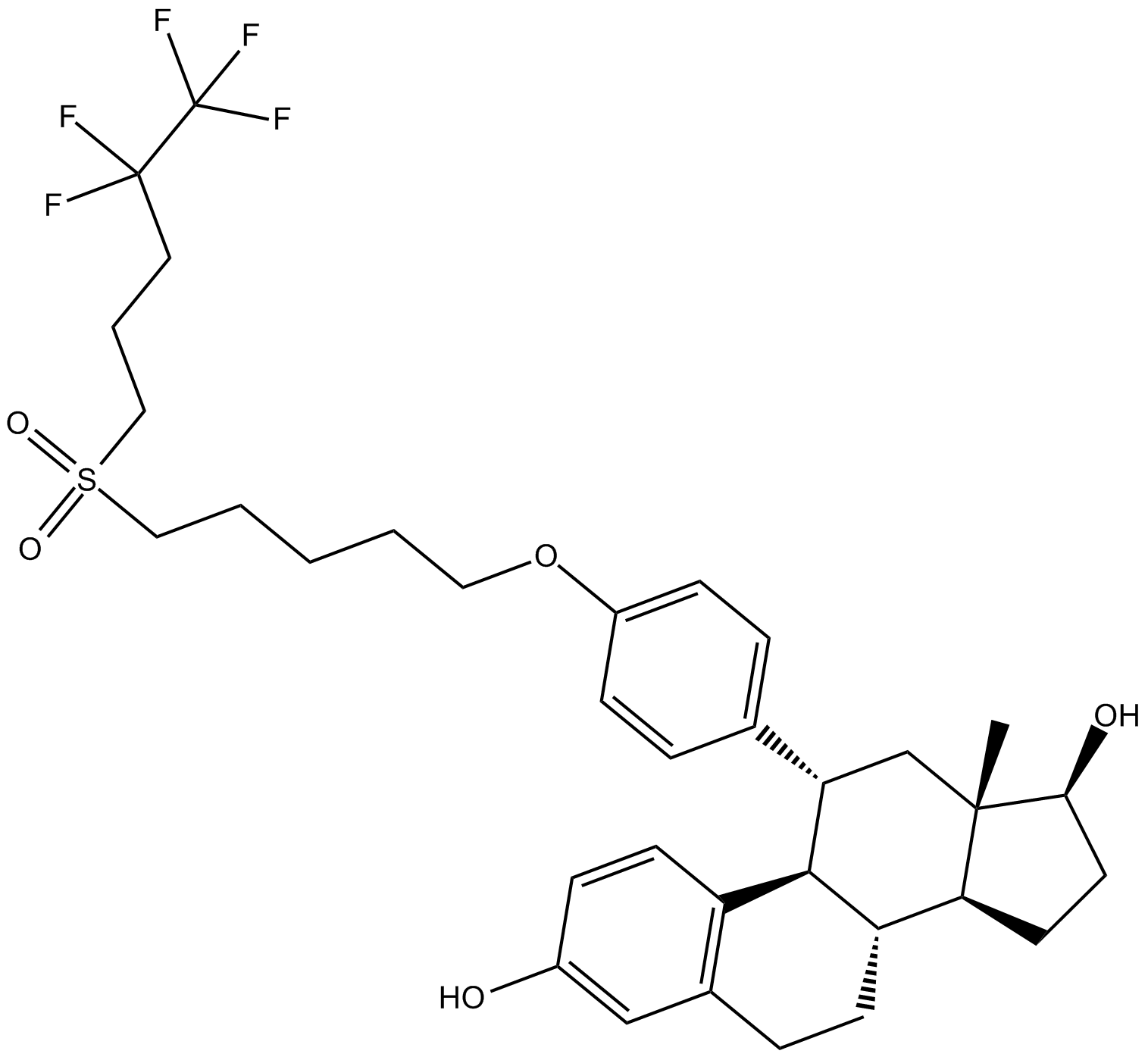 B7322 RU 58668Summary: Pure antiestrogen that downregulates estrogen receptor expression
B7322 RU 58668Summary: Pure antiestrogen that downregulates estrogen receptor expression -
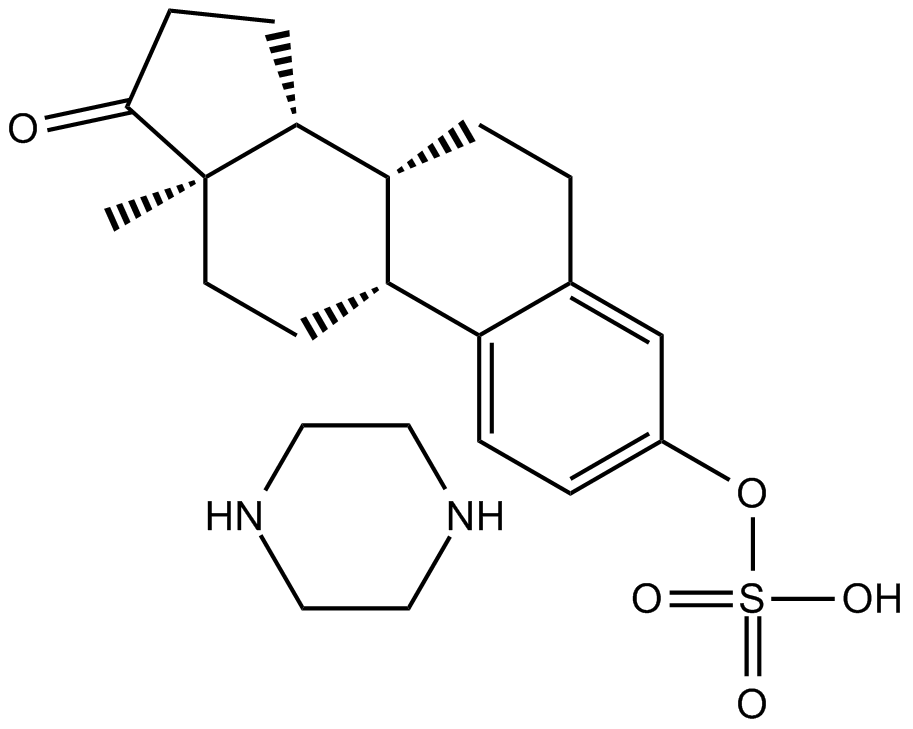 B7438 EstropipateSummary: Estrogen receptor agonist
B7438 EstropipateSummary: Estrogen receptor agonist -
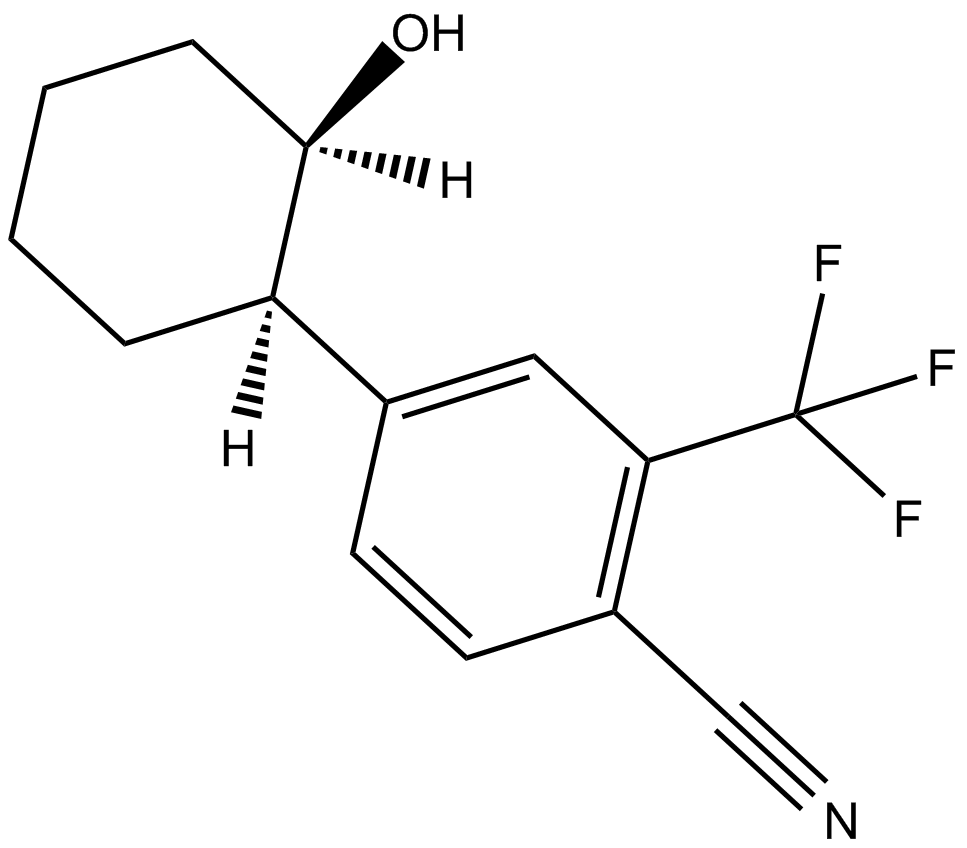 B7536 PF 998425Summary: non-steroidal androgen receptor (AR) antagonist
B7536 PF 998425Summary: non-steroidal androgen receptor (AR) antagonist -
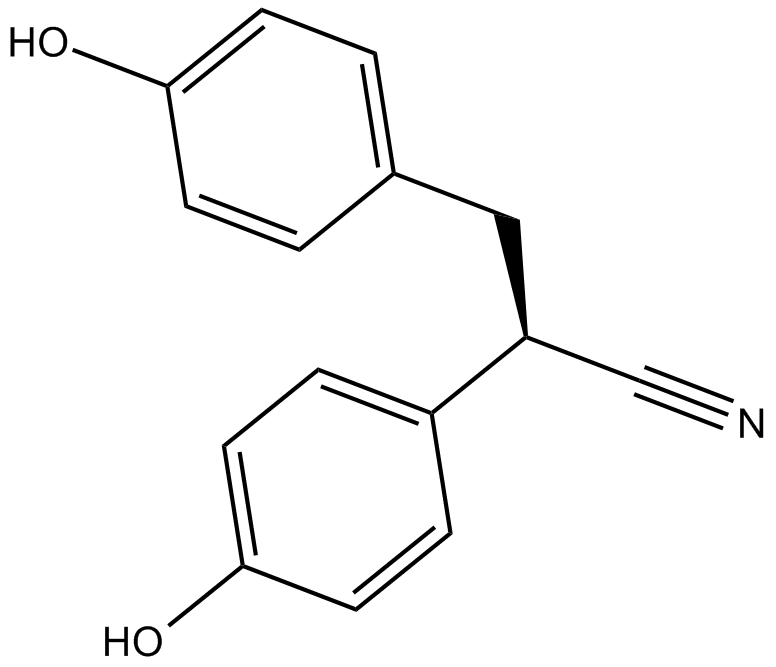 B7672 (R)-DPNSummary: estrogen receptor (ER) β agonist
B7672 (R)-DPNSummary: estrogen receptor (ER) β agonist -
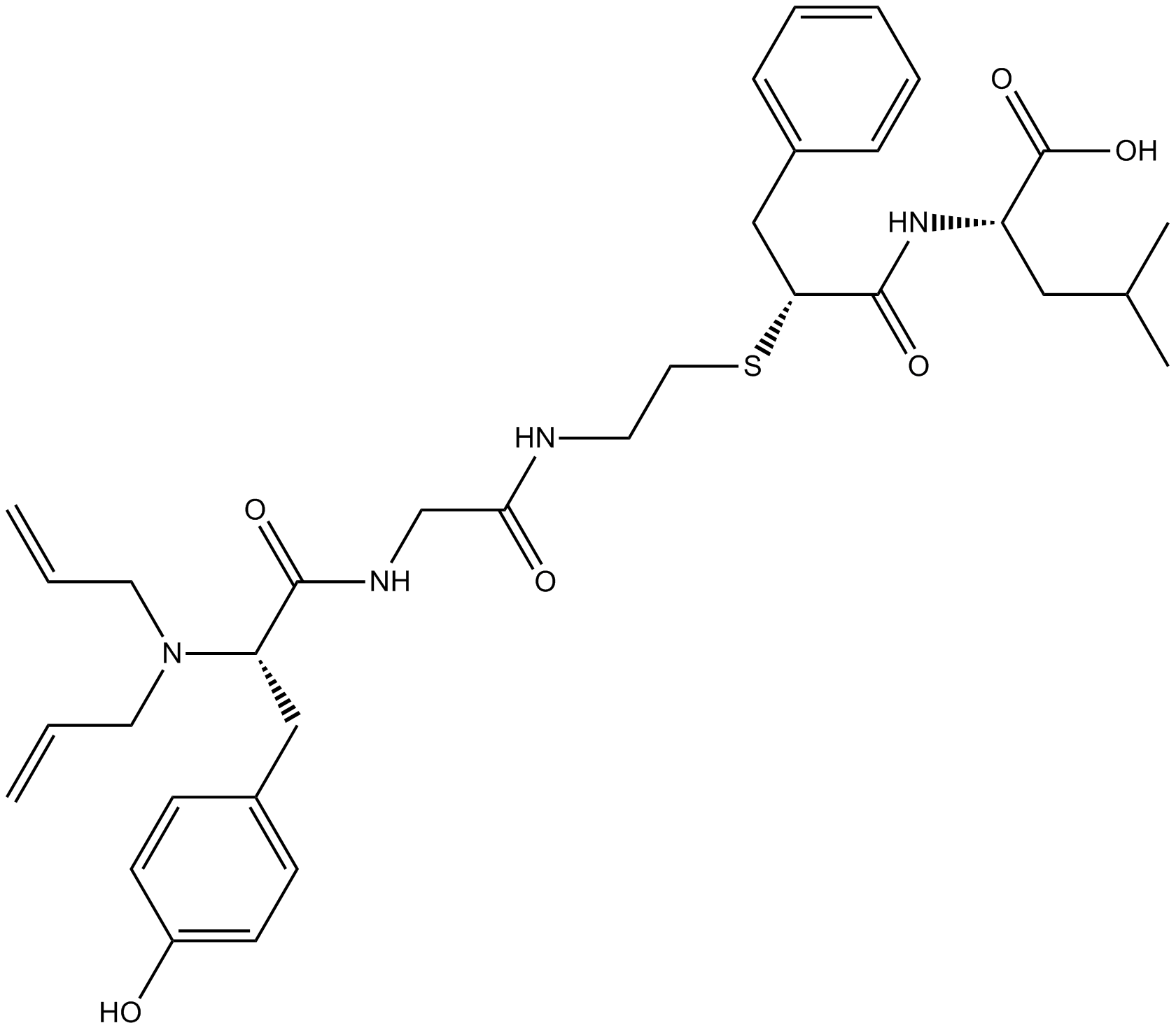 B5022 ICI 154,129Summary: Selective δ opioid antagonist
B5022 ICI 154,129Summary: Selective δ opioid antagonist -
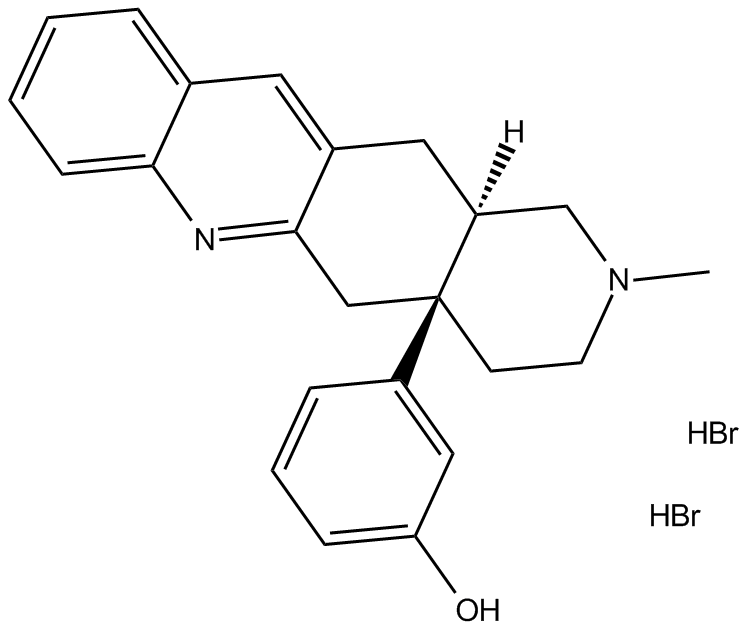 B5034 SB 205607 dihydrobromideSummary: non-peptide δ1 opioid receptor agonist
B5034 SB 205607 dihydrobromideSummary: non-peptide δ1 opioid receptor agonist -
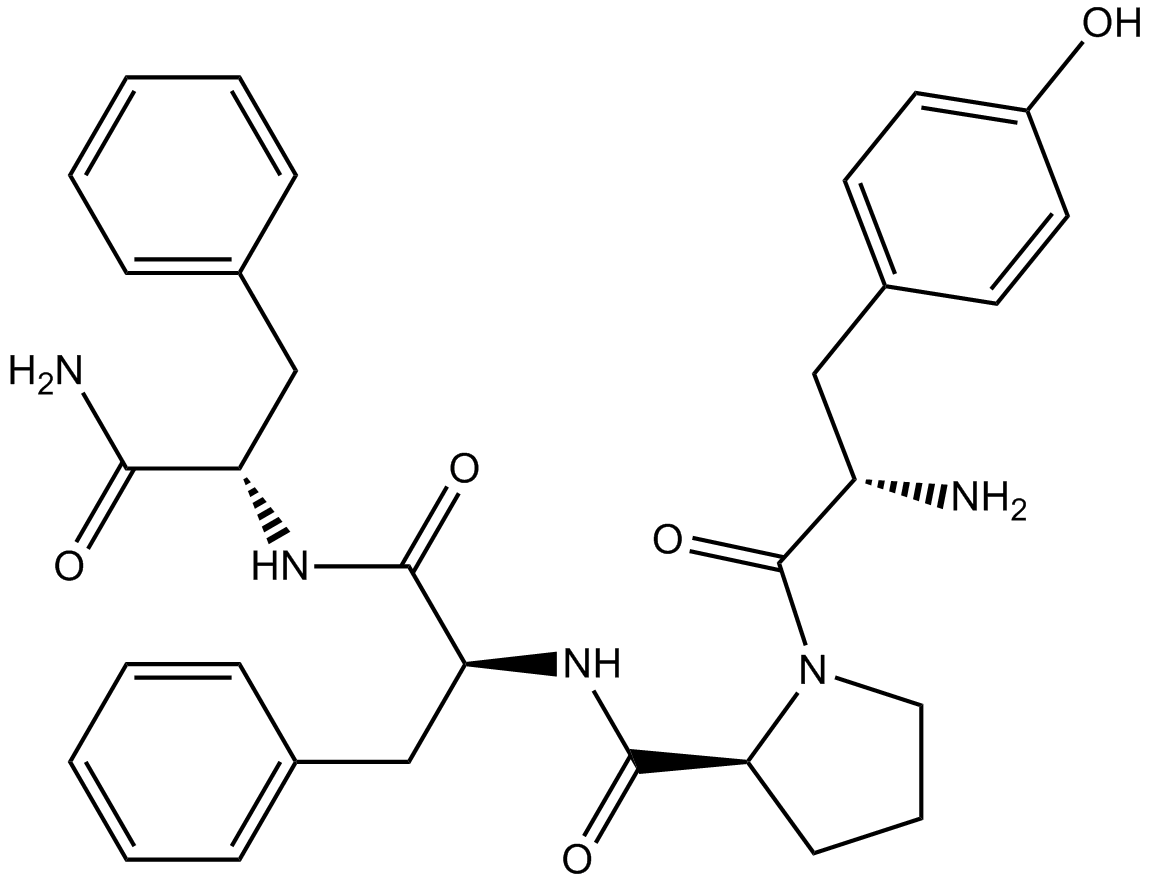 B5045 Endomorphin-2Summary: μ-opioid receptors agonist
B5045 Endomorphin-2Summary: μ-opioid receptors agonist -
 B5067 DSLETSummary: δ Opioid receptor agonist
B5067 DSLETSummary: δ Opioid receptor agonist -
![[D-Ala2]-Deltorphin II](/pub/media/prod_images/b/5/b5072.png) B5072 [D-Ala2]-Deltorphin IISummary: natural agonist of δ opioid receptor
B5072 [D-Ala2]-Deltorphin IISummary: natural agonist of δ opioid receptor -
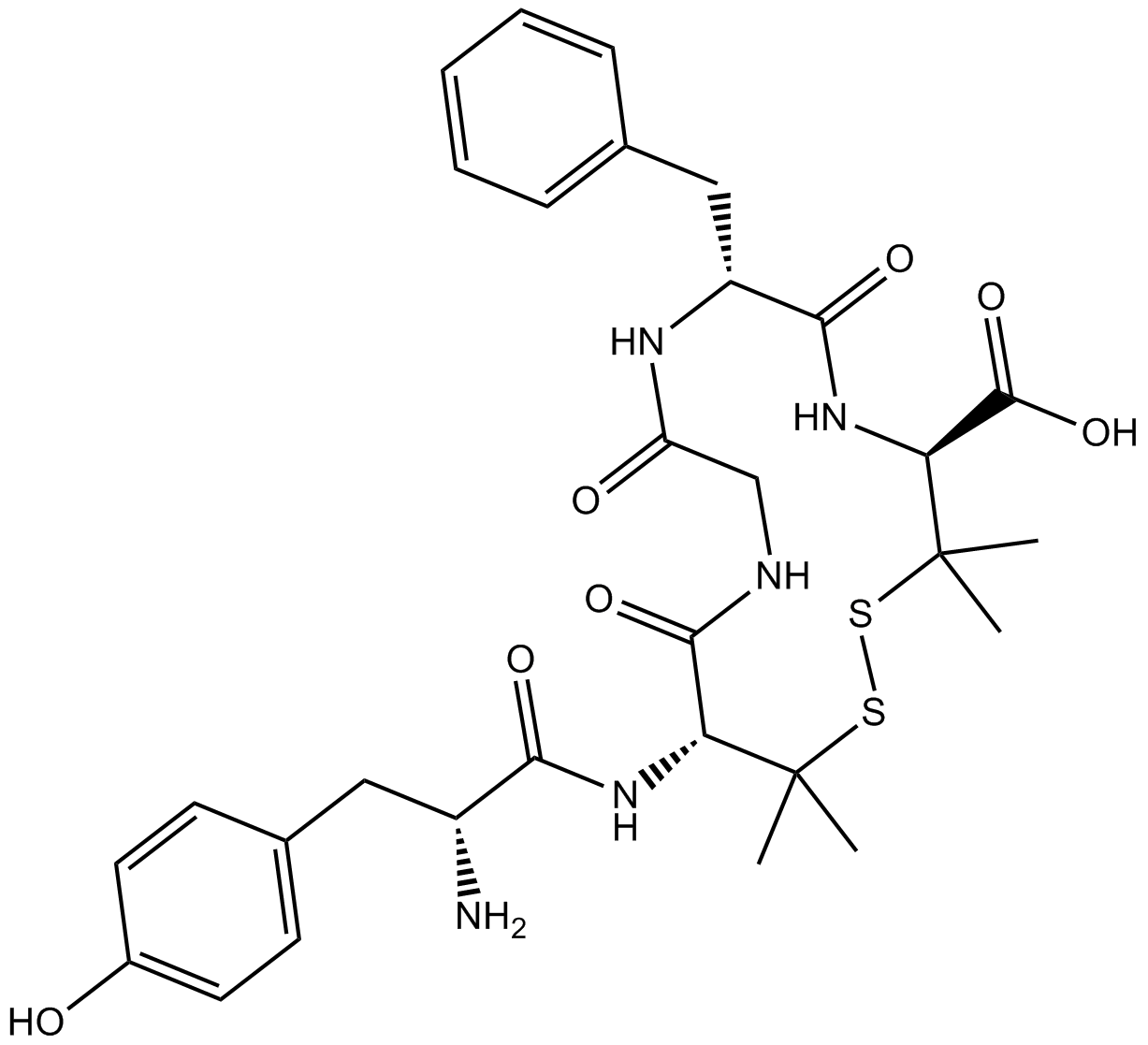 B5111 DPDPESummary: Prototypical selective δ-opioid receptor agonist peptide
B5111 DPDPESummary: Prototypical selective δ-opioid receptor agonist peptide

